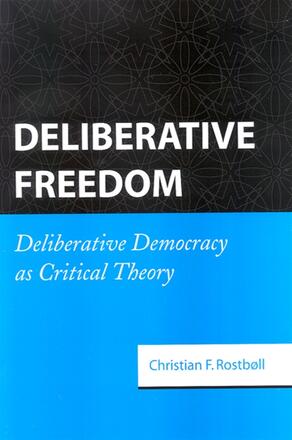
Deliberative Freedom
Deliberative Democracy as Critical Theory
Alternative formats available from:
The first sustained look at the relationship between deliberative democratic theory and the topic of freedom.
Description
In Deliberative Freedom, Christian F. Rostbøll accepts the common belief that democracy and freedom are intimately related, but he sees this relationship in a new and challenging way. Rostbøll argues that deliberative democracy is normatively committed to multiple dimensions of freedom, and that this, in turn, makes it a distinct model of democracy. He presents a new version of deliberative democracy that rejects the prevailing synthesis of Habermasian critical theory and Rawlsian political liberalism, and contends that this synthesis obscures and neglects important concerns in terms of freedom and emancipation. In addition, Rostbøll explores how the many dimensions of freedom supply a new and fruitful way to address issues such as paternalism, elitism, rationalism, and neutrality.
Christian F. Rostbøll is Assistant Professor of Political Science at the University of Copenhagen, Denmark.
Reviews
"This is a thought-provoking and carefully argued book. It makes a unique contribution that adds substantially to our understanding of how deliberative democracy should work. " — Kevin Olson, author of Reflexive Democracy: Political Equality and the Welfare State
"The author does an excellent job of explaining how the theory of deliberative democracy requires a multidimensional concept of freedom. No one had done this yet, but it needed to be done. " — Christopher F. Zurn, author of Deliberative Democracy and the Institutions of Judicial Review